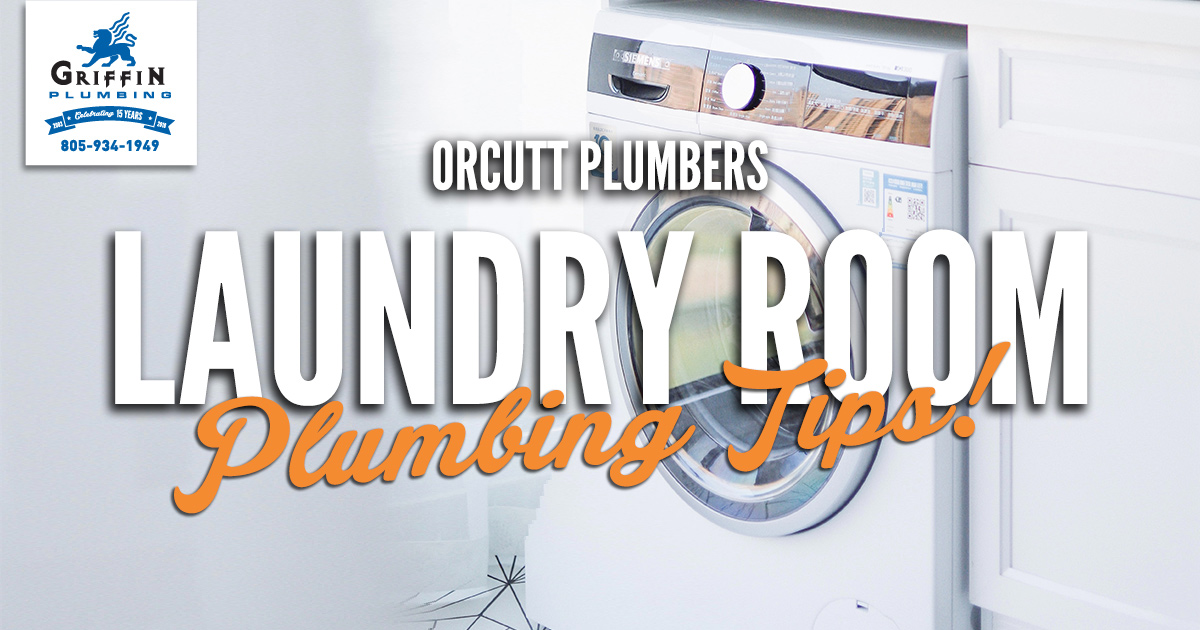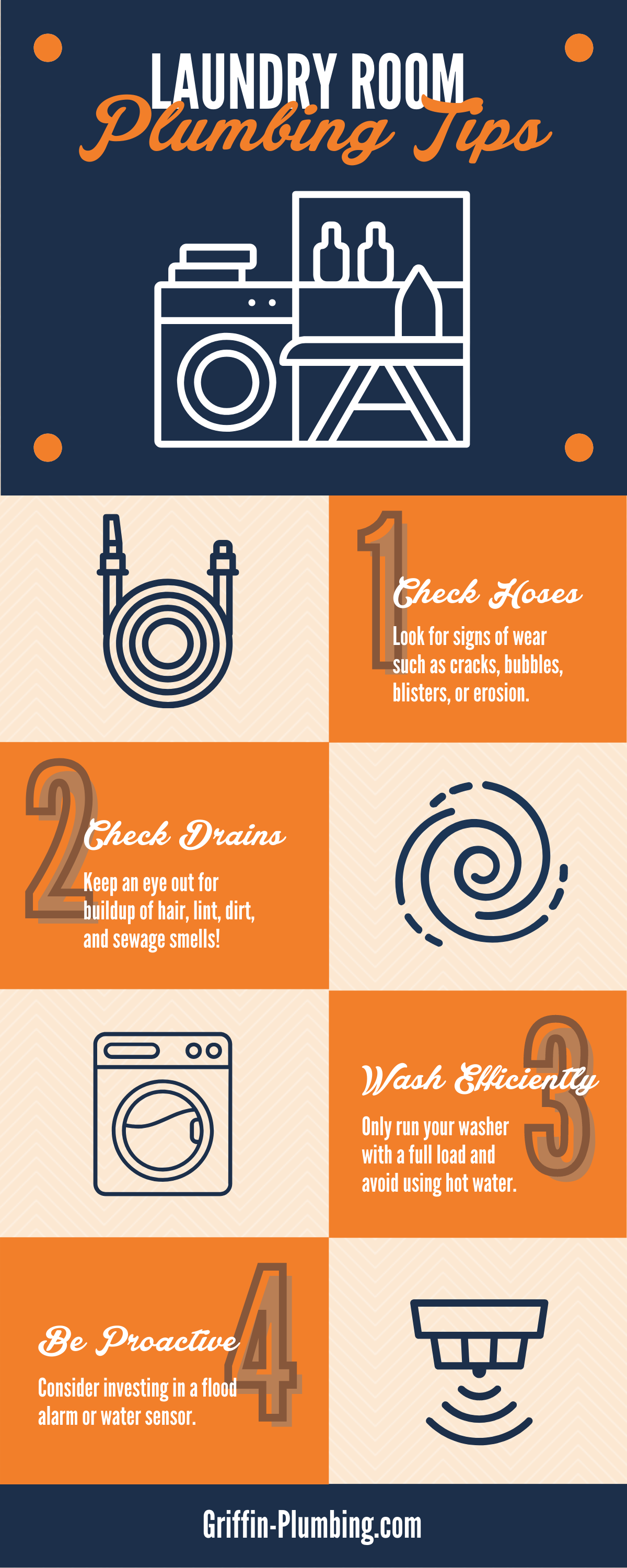Your laundry room isn’t exactly the most thought-of area of your home. You don’t entertain around the washing machine or eat family meals off of the dryer, so you can hardly be blamed for not paying a whole lot of attention to the room where the clothes get clean. But you should be especially mindful considering the amount of water that flows through that room, and our friendly Orcutt plumbers have come up with a list of laundry room plumbing tips that might just come in handy.
1. Check those Hoses
They may be out of sight, out of mind, but the hoses connected to your washer need checking from time to time to prevent a big plumbing problem. Look for signs of wear such as cracks, bubbles, or blisters and erosion, or slight leaks around the connections. Time these checks with setting your clocks back or ahead for daylight saving as a reminder.
If a hose looks like it’s about to fail, consider upgrading to a higher-quality component than the one that came from the factory. We recommend stainless steel braided hoses, which do not wear out as easily as rubber.
2. Check the Drains
Most laundry rooms have floor drains for the washer, and they should be checked regularly for clogs or poor drainage. A good indicator that there’s something amiss: your laundry room starts smelling more like a sewer than a dew-fresh meadow.
If that’s the case, fill a bucket with warm water and then slowly dump it down the drain to flush the line. Do this once a month or so to be proactive. If a simple warm-water flush doesn’t fix the problem, try adding a mixture of baking soda and vinegar in with the warm water.
Washers can also drain into a laundry room sink, which should also be flushed regularly to prevent smelly back-ups.
Consider adding a screen to your drain to collect clogging culprits like hair, lint, and dirt. But these need to be checked and cleaned regularly, as well.
3. Wash Efficiently
This probably isn’t a concern for households where the laundry pile is ever-expanding, but you should only run your washer with a full load of clothes. Washers can use up to 40 gallons of water per load, which is a lot of water to only clean your favorite pair of jeans.
Also, only use hot water if you absolutely have to. Hot water takes more energy and also wreaks havoc on plumbing. Up to 80 percent of the energy used to wash a load of clothes actually goes to heating the water, so there’s a lot of savings to be had by keeping it cold—or even just using warm water.
Lastly, if your washing machine is older, it might be time to upgrade to an energy-efficient model, which can save you on the utility bill in the long run.
4. Be Proactive
A plumbing problem can happen even if you’re vigilant, so for peace of mind, consider investing in a flood alarm or water sensor.
The simplest alarms consist of a sensor that you install wherever you’d expect water to show up where it shouldn’t. When water touches the sensor, the alarm sounds until either the battery dies or the sensor is dry again. More sophisticated alarms can connect to your phone via Bluetooth, so you can start a load of wash and head out the door without worry.
If you do have a problem, or for more laundry room plumbing tips from our experienced Orcutt plumbers, contact us online or give our office a ring at (805) 751-7206 .


















